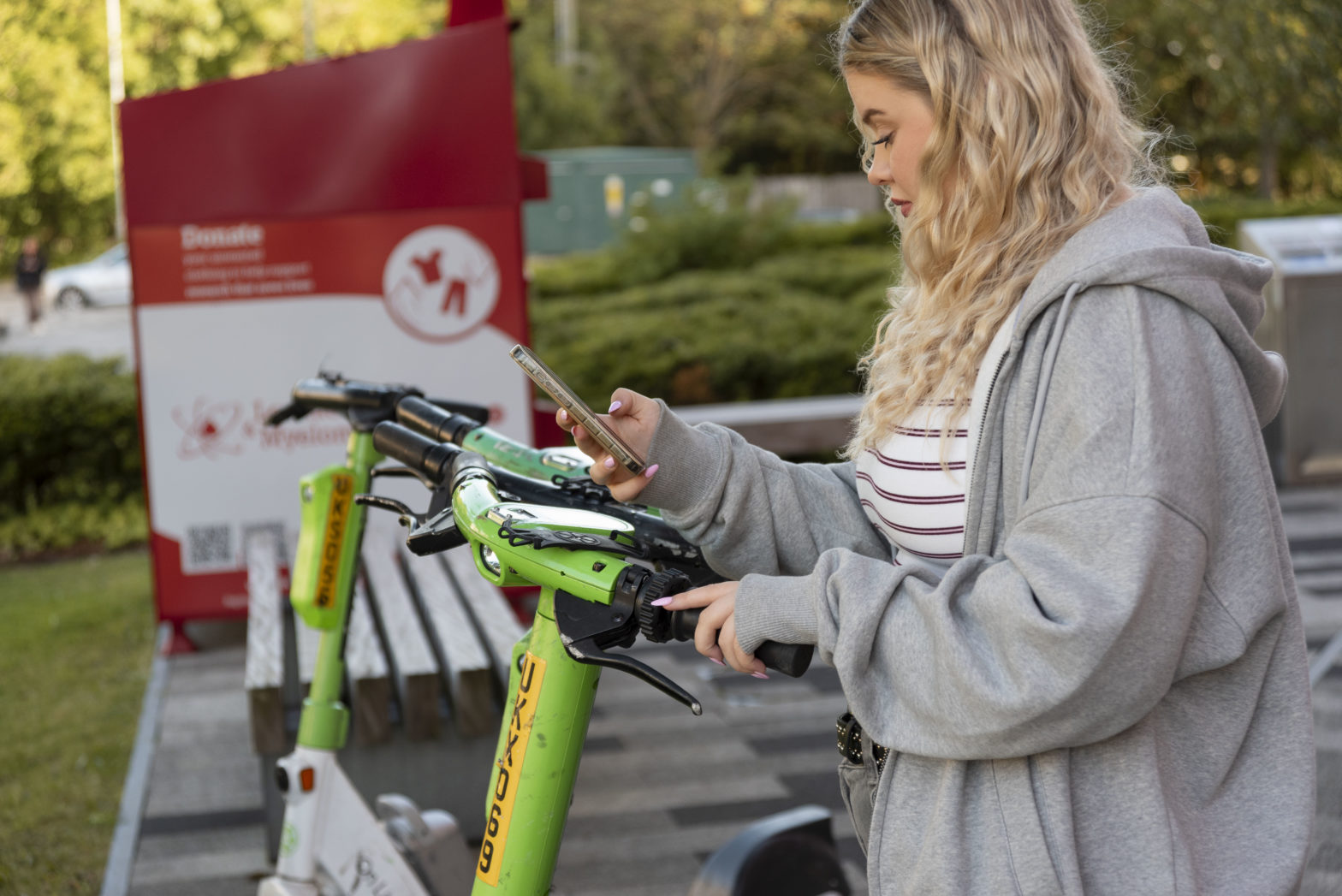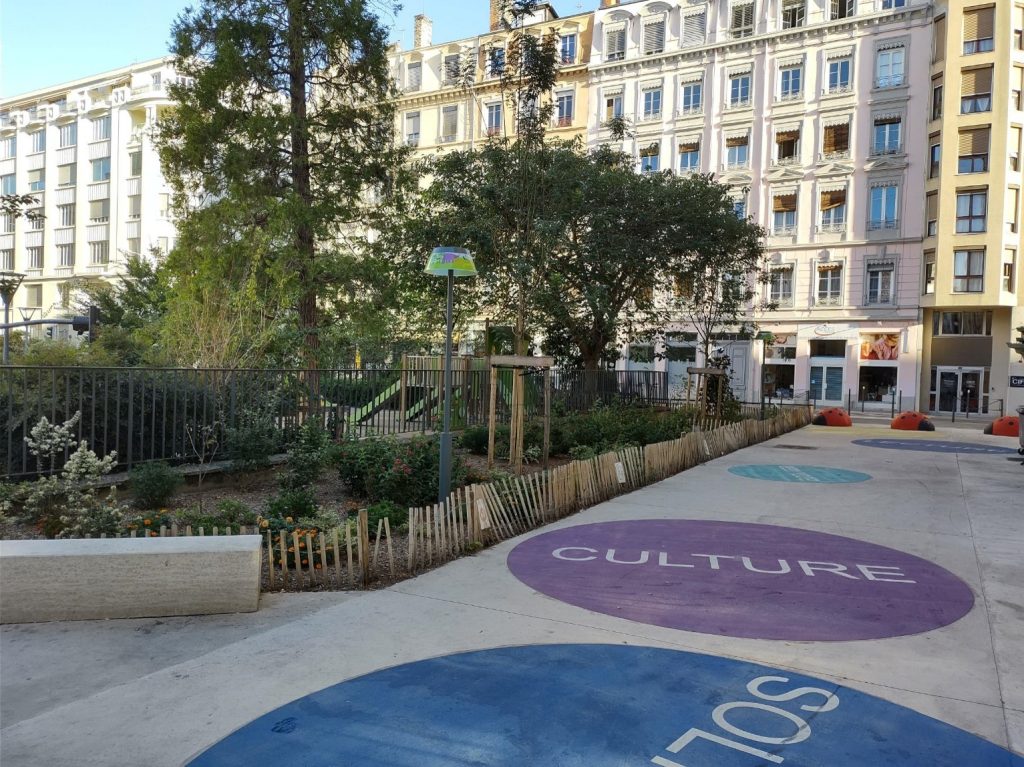
How Lyon has created sustainable mobility and inclusive spaces
02 May 2024
by Eurocities
Since 2020, Lyon city and the metropolis have been collaborating on the ambitious school street programme, ‘rues des enfants,’ which aims to make school surroundings safer, greener, and more inclusive. This initiative translates to ‘streets for children’. As of now, the programme has conducted more than 60 interventions in primary and secondary schools, including systematic co-design with students, traffic calming measures, greening solutions, and the reallocation of urban spaces to pedestrians.
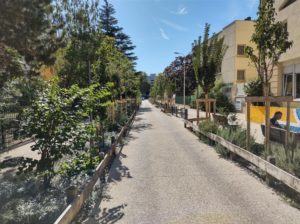
Across all interventions, 15,000 children were involved in participatory planning activities, the greening of their school surroundings and the design of frescos and street light shades. Twenty-two sites have been entirely pedestrianised while the rest were transformed into shared zones using traffic calming measures like implementing 20km/h speed limits and the introduction of one-way streets.
“The beauty of the programme? While the execution of each project is different, the overarching vision is consistent: working closely with children to reclaim and reimagine a small piece of their city—keeping cars at a distance and giving them the space to thrive,” said Melissa Bruntlett, Urban Mobility Advocate and Advisor of Modacity, on a recent organised visit.
A bold vision for public spaces
Another stunning urban transformation has been taking place in the Danton district, a historically car-centred business district. Inspired by Barcelona’s superblocks, the ‘ilot’ has benefitted from greening solutions, traffic calming measures like the 20km/h speed limit and a circulation plan to reduce ‘through’ traffic.
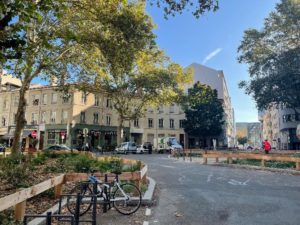
The transformation started with the implementation of a school street on rue Léon Jouhaux before turning the main square, in a second phase, into a shared space, putting pedestrians and cyclists at its centre. New trees and greenery have also been planted, making it a more pleasant environment for residents as well as more resilient to climate change using permeable surfaces, planting trees and vegetation to reduce heat islands.
Not far from the Danton district, the Boulevard Garibaldi, a historical eight-lane road dedicated to car traffic, is also undertaking a major transformation. The two first phases of the project, covering 2.6 kilometres of the boulevard, have reduced car traffic to three lanes, created a lane dedicated to public transport, a separated cycling lane and extended pavements for pedestrians while adding trees and greenery. The third phase of the project has just started. It continues this ambitious transformation by reducing car traffic, adding a separate cycle path and bike parking facilities, and extending pavements while removing 110 car parking spaces.
An ambitious metropolitan-wide cycling network
The new cycling path on Boulevard Garibaldi will be incorporated in the ‘Voies Lyonnaises’ a high-quality cycle network which aims to provide 250 kilometres of continuous and safe cycle lanes over the territory of the metropole by 2026.
The cycling paths are three to four metres wide, separated from other forms of traffic. The objective is that by 2026, three out of four inhabitants in Lyon will live less than 10 minutes from one of the lanes.
A forward-looking vision for road safety and parking
Following a rise in accidents between 2014 and 2019, Lyon adopted a Vision Zero approach regarding road safety. In 2022, it acted very concretely with a 30km/h speed limit policy across the city area. A recent evaluation showed the concrete benefits of the policy: the reduction of road accidents by 35 percent in the City of Lyon and by 21 percent in the metropolitan area between 2019 and 2023.
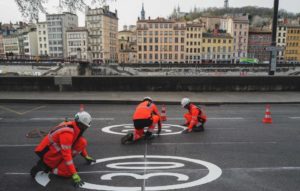
(c) Metropole de Lyon
Lyon is also pioneering a new tariff policy for parking based on the weight and type of energy used by vehicles rather than location-based rates. The policy includes reduced tariffs for residents in special cases, such as those with low incomes or families with three or more children. The plan also allows for specific tariffs for professionals, such as companies delivering goods or services.
Lyon is a member of Eurocities and REALLOCATE – a project under the EU-funded CIVITAS Initiative that works to make sustainable and smart mobility a reality. Find out how cities are transforming their streets into inclusive, green, safe and future-proof urban spaces, where communities live and thrive on the project website.
This is an edited article that was originally published on Eurocities.eu
Image: Ville de Lyon







